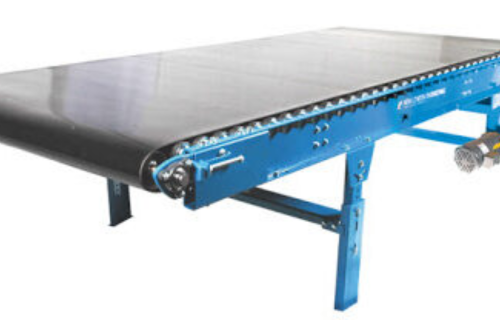In the world of goods handling, conveyor types tirelessly move goods and information. They come in various forms, each designed for specific business needs. From belts to custom options, the variety is captivating. Join us as we explore conveyor belt types, uncovering their models, benefits, and uses. Delve into this world that has revolutionized product processing and movement across industries.
Different Types of Conveyor Belts:
Type 1: Flat Belts
Flat Belts, also known as drive belts, are common in conveying. Their platform transports items and they’re versatile, suitable for manufacturing, packaging, and food processing. Flexibility, easy installation, and low maintenance costs make them ideal for light to medium loads.
Type 2: Modular Belts
Modular Conveyor Belts consist of interlocking modules, offering a flexible and customizable surface. Exceptional strength and versatility suit industries like automotive, electronics, and pharmaceuticals. They excel in precision and efficiency applications.
Type 3: Cleated Belts
Cleated Belts prevent slipping or falling during vertical or inclined transport. Ideal for agriculture, mining, and construction, they handle large material amounts and high slopes.
Type 4: Timing Belt
Timing Belts engage with teeth for precise movement. They find use in industries requiring synchronized motion, like robotics and car assembly lines.
Type 5: Wire Mesh Belts
Wire Mesh Belts feature interlocking metal wires in an open mesh design. Ideal for air or liquid movement applications, they allow fluid flow, air circulation, and visual inspection.
Type 6: Specialty Belts
Specialty Belts cater to specific markets or needs. Examples include magnetic conveyors, vacuum pumps for fragile products, and corrugated sidewalls for steep inclines.
Conveyor Belts power goods and materials movement across industries. Understanding different types and applications is crucial for optimal choice. Each type boasts unique features and benefits, enhancing accuracy, tightening force, and more. By embracing these systems, businesses can elevate productivity, safety, and efficiency.
In summary, conveyor belts underpin product processing across industries. The variety of conveyor systems caters to diverse needs, making them essential tools in modern business processes. As technology advances and needs evolve, conveyor belts will continue playing a pivotal role in goods movement and project completion.


